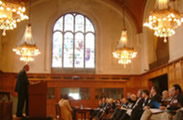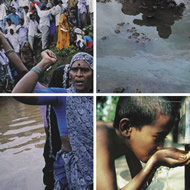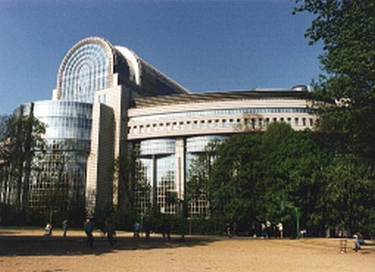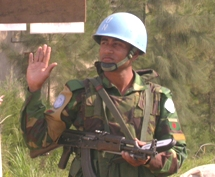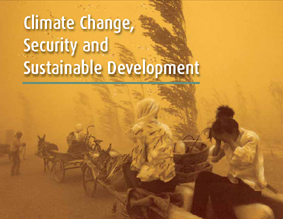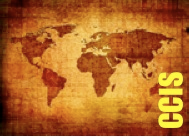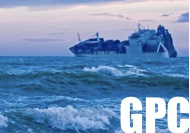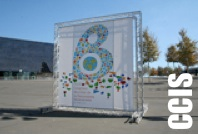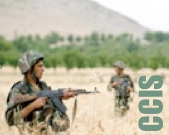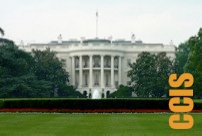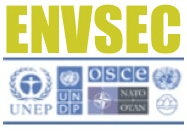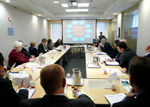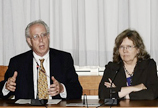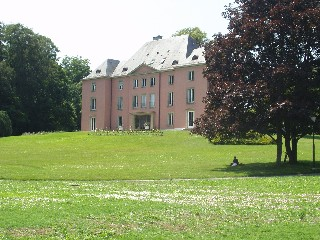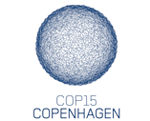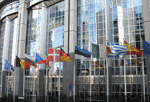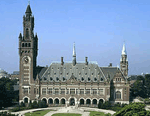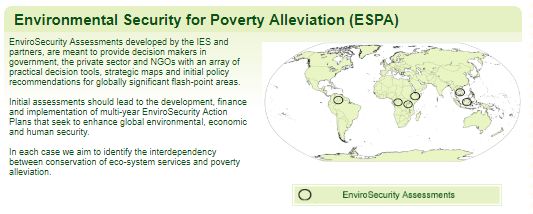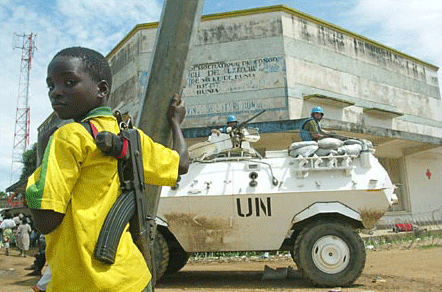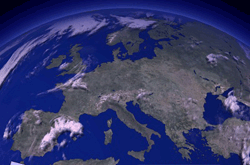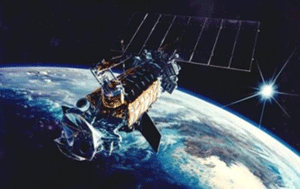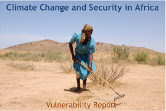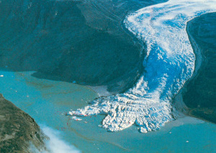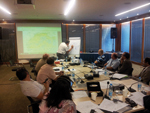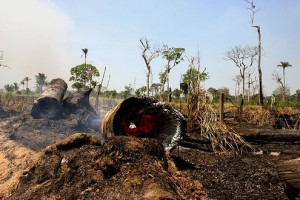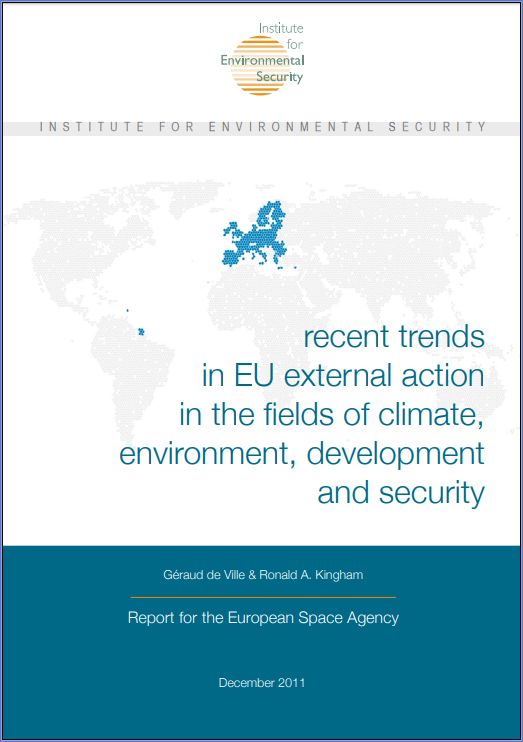Institute for Environmental Security
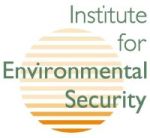
The Institute for Environmental Security (IES) is an international non-profit non-governmental organisation established in 2002 in The Hague, The Netherlands with representatives in Brussels, London, Luxembourg, Addis Ababa, Beirut, Islamabad, California, New York, Toronto and Washington, DC.
The IES works to increase political attention to environmental security as a means to help safeguard essential conditions for peace and sustainable development.
IES was established through the collaborative efforts of the
- - Environment & Development Resource Centre (EDRC),
- - EuroCampus Institute,
- - The Netherlands Committee for the IUCN, and
- - TransGlobal Ventures, Inc
EDRC’s Director, Ronald A. Kingham, was the author / editor of "Horizon 21: Feasibility Study for the Institute for Environmental Security", (IES, The Hague, 2002). He served on the original IES Board and later served as IES Director until September 2017. He remains a senior advisor and the IES representative in Brussels.
Key projects, events and publication of IES have included the following:
The Hague Conference on Environment, Security and Sustainable Development
9-12 May 2004 - The Hague
From 9 to 12 May 2004, the IES led the organisation of "The Hague Conference on Environment, Security and Sustainable Development", held at the Peace Palace in The Netherlands. The objective of the conference and its follow-up is to promote more sustainable relationships between people, their environment and the natural resources they depend on.
» Read more about The Hague Conference on Environment, Security and Sustainable Development
Symposia on the State of the World - 2005: Redefining Global Security
28 February 2005 - The Hague / 1 March 2005 - Brussels
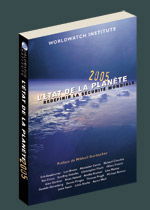
In the State of the World report 2005, Worldwatch Institute researchers explore the underlying sources of global insecurity including poverty, infectious disease, environmental degradation, and rising competition over oil and other resources. On 28 February and 1 March 2005, the IES co-organised symposia on the report at the Peace Palace in The Hague and at the European Parliament in Brussels.
» Read more about the State of the World report 2005
Forum on Environment, Conflict and Cooperation
7 March 2006 - The Hague
On the 7th of March 2006, the Institute for Environmental Security, The Hague, co-organised with Adelphi Research, Berlin, an afternoon Civil Society and Public Forum in connection with the Adelphi Research exhibition on Environment, Conflict and Cooperation.
» Read more about the Forum on Environment, Conflict and Cooperation
Symposium on Sustainable Development and Security
31 May 2006 - Brussels
On 31 May 2006 GLOBE-EU and IES organised a symposium on "Sustainable Development and Security: Challenges and Opportunities" to begin to prepare for the December conference on Greening Foreign and Security Policy: The Role of Europe
The conference examined relationships between environment and security in the four stages of the conflict cycle: predicting instability; preventing conflict; managing conflict; and recovery and transition.
» Read more about this symposium
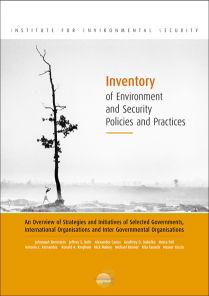 Inventory of Environment and Security Policies and Practices (IESPP) (2006)
Inventory of Environment and Security Policies and Practices (IESPP) (2006)
An Overview of Strategies and Initiatives of Selected Governments, International Organisations and Inter-Governmental Organisations
This report, edited by Ronald A. Kingham, provides an easy to use comparative overview of existing governmental and inter-governmental positions and actions dealing with the relationship between environment, security and sustainable development.
Focusing on selected OECD Member States, including several EU Member States, the report describes the environment and security policies and practices of 13 counties as well as 7 international / intergovernmental organisations.
The IESPP report illustrates how the selected governments / IGOs have addressed their stated environmental security priorities through various policies, programmes and projects with respect to eight key themes.
Greening Foreign and Security Policy: The Role of Europe
6-7 December 2006 - Brussels
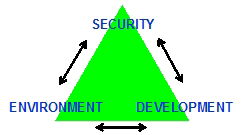
GLOBE-EU and IES co-organised this conference on "Greening Foreign and Security Policy: The Role of Europe" at the European Parliament in Brussels on 6-7 December 2006. The aim of the meeting was to help promote a political process for the better integration of environment and sustainable development into European foreign and security policies.
» Read more about this conference
Forces for Sustainability
14-15 March 2007 - The Hague
Prevention, management and transformation of armed conflict implies a range of challenges for the military security sector as well as for the development sector. To discuss these challenges, the IES and IUCN-CEESP brought together decision makers, opinion leaders, peacekeeping professionals, scientists and NGOs in the Peace Palace on 14 and 15 March 2007.
» Read more about this conference
From Bali to Poznan: New Issues, New Challenges
18 December 2007 - Brussels
On 18 December 2007, the IES convened a conference on the subject of the impact of climate change on security and sustainable development. The conference, called "From Bali to Poznan: New Issues, New Challenges", was held at the European Parliament in Brussels and included presentations and debate on a great variety of topics.
» Read more about this conference
The Geopolitics of Climate Change
23 April 2008 - Brussels
On 23 April 2008, The IES co-organised with the Swedish Defence Research Agency (FOI) a half day symposium during which Dr. Peter Halden presented his recent book on "The Geopolitics of Climate Change". During his speech, Halden explained that "climate, in itself, is not a threat" and that its consequences are rather conditioned by the contexts of the societies facing them.
Globalization and Environmental Challenges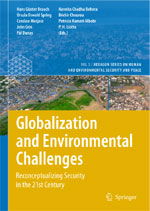
14 July 2008 - Brussels
Globalization and Environmental Challenges pose new security dangers and concerns. In this book, 92 authors from 5 continents assess the global reconceptualization of security triggered by the end of the Cold War, globalization and global Tenvironmental change in the early 21st century. On 14 July, the book was presented to the public in Brussels.
» Read more about this book launch
The Perfect Storm: Trade, Finance and Climate in 2009
15 September 2008 - Brussels
For any new climate agreement to operate effectively there will have to be changes to the way the World Trade Organisation, the World Bank and the International Monetary Fund work. This seminar that took place at September 15th 2008 in Brussels examined the climate-friendly changes needed by these organisations to underpin an agreement at the Copenhagen Conference of the Parties (COP) in December 2009.
Roundtable Workshop Environment & Security: Challenges for Change
6 October 2008 - Barcelona
The objective of this roundtable workshop at the IUCN Congress in Barcelona was to bring together the world of conservation and sustainable development with the world of security and the military. In roundtables participants looked into the aspects of environmental security issues in various phases of violent conflict and how this may play out in different parts of the world.
The Importance of Military Organisations in Protecting the Climate
3-5 November 2008 - Paris
One of the great untold stories of environmental success is the role of the military in assuring the success of the Montreal Protocol. Today, the military are focusing on what they can do to reduce greenhouse gas emissions. This workshop, complementary to the EU Member States Defence Environmental Network (DEFNET) meeting, was held in Paris on 3-5 Nov 2008.
The impact of the US Elections on Transatlantic Relations
12 November 2008 - Brussels
With the current crises in finance, trade, environment and foreign policy, the US Presidential election result seems more important than ever to those in the rest of the world without a vote. What will the implications be for foreign policy and transatlantic relations? The IES co-organised the seminar "After the Vote" in Brussels on 12 November 2008 to examine such issues.
Environmental Dimensions of Security - The Next Steps of ENVSEC
13 November 2008 - Brussels
On 13 November 2008, the Institute for Environmental Security facilitated the organisation of the ENVSEC Conference in Brussels. The meeting, held at the European Parliament, was designed to bring the ENVSEC Initiative closer to the European sphere in Brussels and encourage new forms of cooperation with EU policy makers in the fields of environment and security.
Planet in Peril - Poznan Outcomes & Copenhagen Prospects
15 December 2008 - Brussels
Immediately after the UN Climate Change talks in Poznan, the IES co-organised the "Planet in Peril" conference in Brussels on 15 December 2008. Experts from the EU and US evaluated the Poznan outcomes and considered the prospects for the world forging a new accord by December 2009 and the implications for international relations and security.
Climate Change & Security at Copenhagen
New Thinking on the Atlantic Contribution to Success - 17 March 2009 - Washington, D.C.
The year 2009 is a defining moment for the issues of climate change & security. The negotiations at Copenhagen will be crucial in the struggle to contain damage from climate change. These negotiations take place against the background of a complex and rapidly changing international situation. The role of the Atlantic powers will be essential...
GPC Expert Group Meeting
18 March 2009 - Washington, D.C.
A first Expert Group meeting was held in Washington, DC on 18 March 2009 in the framework of the Global Policy Coherence 2009 Project. It was decided to produce a hit list of ten ways in which greater coherence could be brought to the resolution of the parallel negotiations on climate, trade and financial governance
» Read more about this project
GPC2009 Project presented at Bonn Side Event
10 June 2009 - Bonn
The Global Policy Coherence 2009 Project was introduced on 10 June, at a side event of the Bonn climate negotiations. The complexities of cooperation among government ministries on climate change and its relationship to economic arenas were highlighted. It was underscored that a successful climate solution will necessarily require change to financial and trade practices
» Read full event report » More about this project
GPC Roundtable Discussion on Trade and Climate
16 June 2009 - Geneva
In this round table, hosted by the Graduate Institute, WTO and UNEP staff, NGO experts, academics and trade attaches from permanent representations in Geneva discussed the linkages between trade and climate. The possibilities to adapt the WTO regime to make it compatible with a post 2012 climate agreement and the need for more coherent trade and climate policy in capitals were central topics in the discussion.
Climate Change & Security at Copenhagen - II
The Contribution of the Global Security Community to Success - 7-8 Oct 2009 - Brussels
In the struggle to contain damage from climate change, the negotiations at Copenhagen will be crucial. These negotiations take place against the background of a complex and rapidly changing international situation. Now, what can be done to ensure effective co-operation between Washington and Brussels in 2009 and beyond? This was discussed in Brussels on October 7-8, 2009.
» More
Climate Change & Security at Copenhagen - III
Climate Change: The Role of the Military - 29 Oct 2009 - Washington, D.C.
The objective of this conference was to highlight the perspective of the world's militaries into the dialogue about impending security threats, focusing on two areas of threats, Afghanistan and glacial melt at the Third Pole. The conference witnessed the official release of the Military Advisory Council's First Statement, endorsed by senior officers from eight different countries, including the USA, India and the UK.
» More
COP 15 United Nations Climate Change Conference - Side Events
Delivering Climate Security - 17 December 2009 - Copenhagen
On 17 December, the Institute for Environmental Security is taking part to a side event entitled "Delivering climate security: International coordination around security threats from climate change". The event, organised by E3G in partnership with IES, Chatham House and the Energy Security Initiative of Brookings, will gather leading climate security experts to explore climate change impacts on national security and how the global climate regime can address this threat.
» More
Climate Change & Security after Copenhagen
17 February 2010 - Brussels
On 17 February 2010 the Institute for Environmental Security, in association with the EastWeast Institute and within the framework of the Seventh Annual Worldwide Security Conference, organised the workshop "Climate Change & Security after Copenhagen".
» More
The Hague Environmental Law Facility
20 April 2010 - The Hague
On 20 April 2010 the Institute for Environmental Security, in collaboration with the T.M.C. Asser Institute for Private and Public International Law, organised a workshop on "The Hague Environmental Law Facility (HELF)".
» More
Environment, Development & Security: New Ideas, Fast Action
01 September 2010 - Brussels
On 01 September 2010 the Institute for Environmental Security, in co-operation with GLOBE EU and with the support of The Netherlands Ministry of Foreign Affairs / Development Co-operation, organised the meeting 'Environment, Development & Security: New Ideas, Fast Action'....
» More
ESPA: Environmental Security for Poverty Alleviation (2005-2010)
The aim of this programme was to create an array of practical decision tools, strategic maps and initial policy recommendations for decision makers in government, the private sector and NGOs on supporting people's livelihoods that depend on globally significant ecosystems. EnviroSecurity Assessments were produced for Kalimantan, Indonesia, Great Lakes, Africa; Matavén, Colombia; Congo Basin, Africa; Horn of Africa and the Mekong River Basin.
The ESPA programme also involved the organisation of the conference on 'Illegal Trade in Natural Resources - What can Brussels do?' at the European Parliament, September, 2010.
Illegal Trade in Natural Resources - What can Brussels do?
29-30 September 2010 - Brussels
On 29-30 September 2010 the Institute for Environmental Security organised an international conference on illegal trade in natural resources. The event, held at the European Economic and Social Committee (EESC) in Brussels, was aimed at promoting EU-based solutions for combatting illegal trade in natural resources... » More
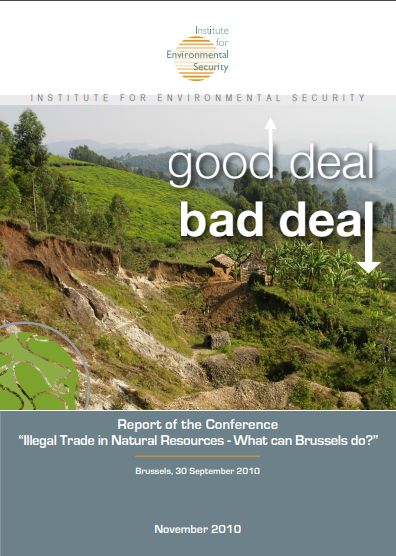 The conference report, “Good Deal; Bad Deal” notes that natural resources are the backbone of the global economy. Many emerging economies are based on exporting natural resources to industrialised countries fuelling global markets in much needed raw materials. In accountable States, the income generated should be used to serve development needs, for example to finance the construction of infrastructures or programmes for poverty alleviation. However, governments sometimes lack the capacity or the legitimacy to regulate the exploitation of these assets. In these cases, natural resources can become a cause for corruption, social disputes and even violent conflicts.
The conference report, “Good Deal; Bad Deal” notes that natural resources are the backbone of the global economy. Many emerging economies are based on exporting natural resources to industrialised countries fuelling global markets in much needed raw materials. In accountable States, the income generated should be used to serve development needs, for example to finance the construction of infrastructures or programmes for poverty alleviation. However, governments sometimes lack the capacity or the legitimacy to regulate the exploitation of these assets. In these cases, natural resources can become a cause for corruption, social disputes and even violent conflicts.
Provide a global overview of the issues at stake through various perspectives (environment, trade, development, peace & security). Improve the understanding of the dynamics and actors behind illegal trade in natural resources.
ENVSEC - IES Workshop on Environmental Security Assessments
21-22 November 2010 - Brussels
On 21-22 November 2010 the Institute for Environmental Security, in collaboration with UNEP and ENVSEC, organised a workshop on 'Environmental Security Assessment: Methodologies and Practices'. The meeting brought together experts with experience in designing and carrying out ESAs and policy makers and practitioners with a demonstrated interest in using such assessments...
» More
ESA - IES Workshop on Europe's Arctic Course
8 December 2010 - Paris
On 8 December 2010 the Institute for Environmental Security, in collaboration with the European Space Agency, organised a workshop on 'The Future of Space Cooperation in the Arctic Region'...
» More
Africa, Climate Change, Environment and Security Briefing
8 Apr 2011 - Brussels
On 8 April 2011 the IES and The Centre in Brussels hosted a presentation of the recent publication "Climate Change and Security in Africa: Vulnerability Report". The report recognises that the security implications of climate change are of increasing relevance to international peace and security and that Africa - where adaptation mechanisms may be weak or uncoordinated - is especially vulnerable to insecurity related to water, food, energy, migration and natural hazards...
» More
ACCES: Africa, Climate Change, Environment and Security Dialogue Process (2010-2011)
This project involving IES, EDRC and other partners centred on the publication "Climate Change and Security in Africa: Vulnerability Report". The report recognises that the security implications of climate change are of increasing relevance to peace and human security. In Africa - where adaptation mechanisms may be limited or uncoordinated – many communities are especially vulnerable to insecurity related to water, food, energy, migration and natural hazards.
Building Climate Change Institutions: The Case of Environment and Security
21 Mar 2012 - Brussels
The relative success of the climate change talks in Durban offer the world the opportunity to move beyond the discussion about funding and the modalities of mitigation. Whatever the outcome of the negotiations in 2015, the world now faces several decades of abrupt climate change with intense climate events. Humanity has no choice but to shape the institutions to manage the consequences of climate change on international security ...
» More
Working with the OSCE
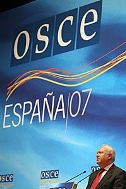 In 2007 several associates of EDRC and IES assisted in the preparation of a background paper and in the organisation of an OSCE workshop on Environment and Security held in Austria. The event was part of the preparations for the 15th OSCE ministerial council held in Madrid on 29 and 30 November. Discussions on the subject resulted in a decision on water management and the Madrid Declaration on Environment and Security which calls for intensified cooperation in the area of environment and security in the OSCE region. It acknowledges that environmental factors such as soil degradation and climate change can be a potential additional contributor to conflict and signals that environmental cooperation could be a useful tool in diminishing tensions and preventing conflicts.
In 2007 several associates of EDRC and IES assisted in the preparation of a background paper and in the organisation of an OSCE workshop on Environment and Security held in Austria. The event was part of the preparations for the 15th OSCE ministerial council held in Madrid on 29 and 30 November. Discussions on the subject resulted in a decision on water management and the Madrid Declaration on Environment and Security which calls for intensified cooperation in the area of environment and security in the OSCE region. It acknowledges that environmental factors such as soil degradation and climate change can be a potential additional contributor to conflict and signals that environmental cooperation could be a useful tool in diminishing tensions and preventing conflicts.
On behalf of EDRC and IES, Ron Kingham, presented a background paper on “Economic and Environmental Confidence and Peace-building Measures and the Role of the OSCE” and moderated the panel debate on Recommendations for OSCE Action at the OSCE Chairmanship on Economic and Environmental Activities as Confidence-building Measures on 30 May 2011.
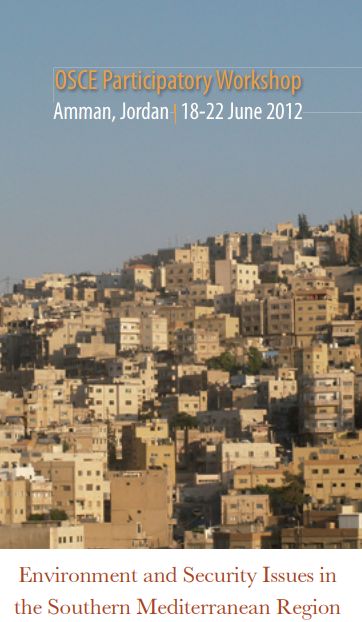 Several experts associated with EDRC and IES assisted in the organisations of the Participatory Workshop on Environment and Security Issues in the Southern Mediterranean Region held in Amman, Jordan, 18-22 June 2012.
Several experts associated with EDRC and IES assisted in the organisations of the Participatory Workshop on Environment and Security Issues in the Southern Mediterranean Region held in Amman, Jordan, 18-22 June 2012.
The focus of the workshop was on the Southern Mediterranean region and in particular on the OSCE Mediterranean partners for Co-operation: Algeria, Egypt, Israel, Jordan, Morocco and Tunisia. Key issues explored included:
- - Region in Focus - Main Environment and Security challenges
- - Water Scarcity and Land Degradation - Identifying the causes and looking for solutions
- - Environmental implications of Climate Change
- - Environmental implications of Energy and Security
- - The role of the Civil Society
Environment and Security in the Southern Mediterranean Region
18-22 June 2012 - Amman
The IES facilitated an OSCE project which aimed to explore and map existing and especially new environmental issues that may have an impact on security as well as environmental implications of security policies in a region undergoing major political changes; create wider understanding of the national, regional and international frameworks and mechanisms available for cooperation on environment and security issues in the region; and to put forward recommendations for increased national, regional and international action and solutions on environment and security issues including with regard to the role of the OSCE... » More
Ecocide: Developing a View from The Hague
5 November 2012 - Brussels
On 5 November 2012, the Institute for Environmental Security and Ecojust organised the workshop ‘Ecocide: Developing a View from The Hague’. The event was attended by eighteen international legal and environmental experts. Special guest speaker was Ms Polly Higgins, advocate and leading voice in the Eradicating Ecocide campaign. The focus was on discussing the matter from the perspective of The Hague as ‘Legal Capital of the World’ and in particular the issue of how legal institutions in The Hague could include ecocide as part of their mandate, making ecocide an international crime. » More
Climate & Security Envoys – New Developments in Climate Change and Security
6 November 2012 - Brussels
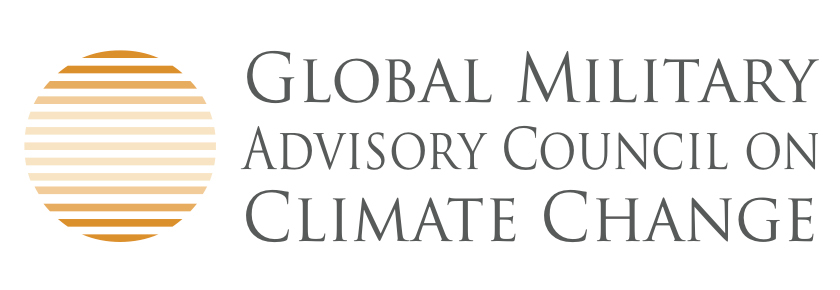
On 6 November 2012, the IES organised a seminar on “Climate & Security Envoys – New Developments in Climate Change and Security” in the European Parliament where a distinguished group of speakers examined the role of climate and security envoys.
The meeting was organised in cooperation with Indrek Tarand, MEP (Rapporteur for Dossier: Role of the Common Security and Defence Policy in case of climate driven crises and natural disaster) and held under the auspices of the Cyprus Presidency of the Council of the EU. » More
Recent Trends in EU External Action in the Fields of Climate, Environment, Development and Security: Report for the European Space Agency (2011)
This report was prepared at the request of the European Space Agency in order to provide the ESA with information on the evolution of EU external action in the fields of climate, environment, development and security. The main aim was to advise the Agency on the latest)developments in the EU external action in these policy areas.
 SYMIN: System Monitoring for Law Enforcement of Informal Mining (2011-2013)
SYMIN: System Monitoring for Law Enforcement of Informal Mining (2011-2013)
Together with its partners GAF AG and DLR, the IES was tasked by the European Space Agency to provide timely information to Afghanistan's Ministry of Mines about informal mining in some of its remotest regions. >> Read More
COBRA: Future Challenges Local Solutions (2011-2015)
 This EU FP7 involving IES and 8 other partners focused on community owned solutions for the management of ecosystem services with the potential to act as showcases for determining the most effective and efficient use of these emerging funding streams in order to maximise social justice and ecological sustainability.
This EU FP7 involving IES and 8 other partners focused on community owned solutions for the management of ecosystem services with the potential to act as showcases for determining the most effective and efficient use of these emerging funding streams in order to maximise social justice and ecological sustainability.
EFFACE: European Union Action to Fight Environmental Crime (2012-2016)
This EU FP7 project involving IES and 10 other partners assessed the impacts of environmental crime as well as effective and feasible policy options for combating it from an interdisciplinary perspective, with a focus on the EU. >> Read More
PSI: Planetary Security Initiative
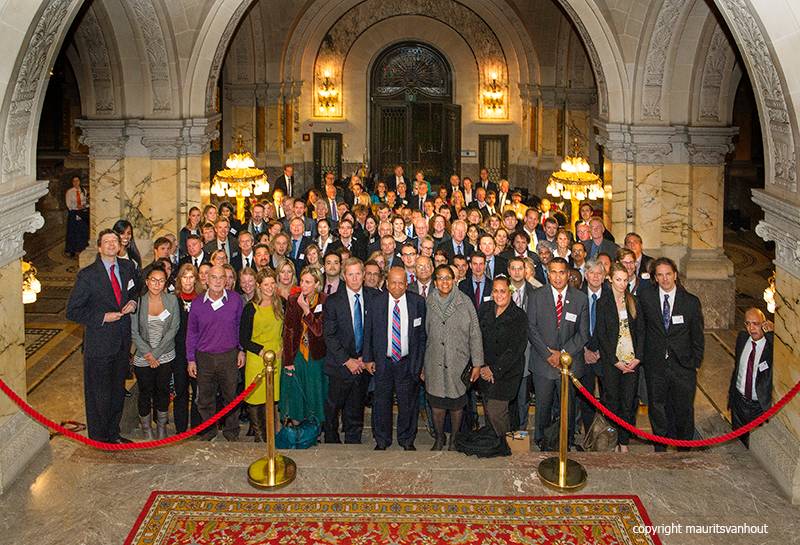 In 2015, EDRC and IES Director, Ron Kingham, assisted the Ministry of Foreign Affairs of the Netherlands with the organisation of the conference on "Planetary Security: Peace and Cooperation in Times of Climate Change and Global Environmental Challenges”, Peace Palace, The Hague, The Netherlands, 2-3 Nov 2015.
In 2015, EDRC and IES Director, Ron Kingham, assisted the Ministry of Foreign Affairs of the Netherlands with the organisation of the conference on "Planetary Security: Peace and Cooperation in Times of Climate Change and Global Environmental Challenges”, Peace Palace, The Hague, The Netherlands, 2-3 Nov 2015.
Several others associated with EDRC and IES played leading roles in the conference as well - including the main organiser, Alexander Verbeek, then Strategic Policy Advisor on Global Issues in the Netherlands Ministry of Foreign Affairs. Also involved from EDRC / IES were Jenny Clover, Nishat Kazmi, Philippe Rekacewicz, and Nasser Yassin.
In 2016-2017 IES was a member of the PSI consortium which organised the 2nd Planetary Security Conference in December 2016. For more information including on the 2017 and 2019 conferences visit the PSI website.
